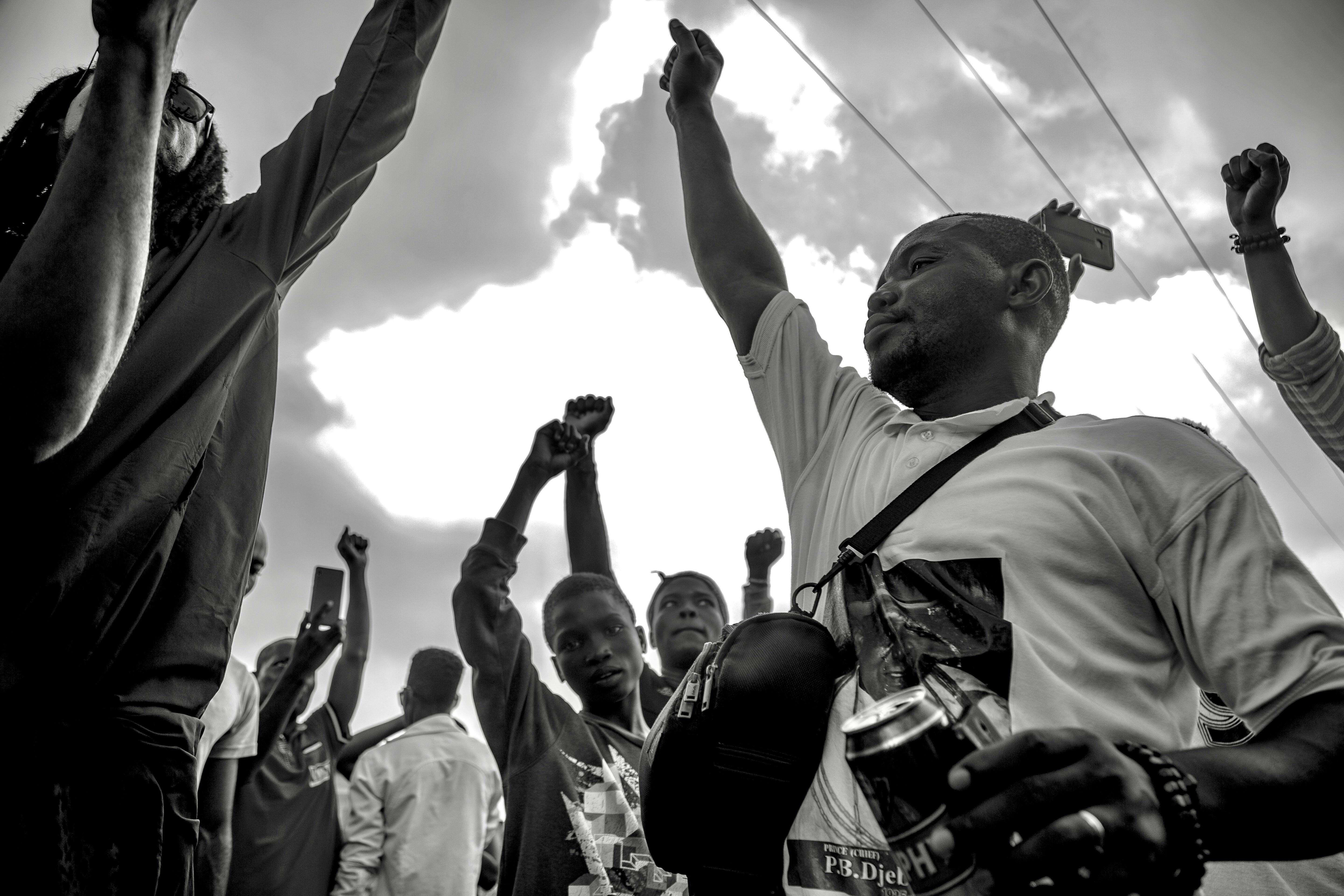In Nigeria, the Police can get you arrested for flimsy reasons. You could be locked behind bars for having a laptop in your possession and using an iPhone, which according to rogue police officers, could mean that you are an internet fraudster.
On most occasions, it simply means the person ‘who had been caught’ had refused to grease the palm of a police officer. The bottom line is you could be thrown in jail for years without trial and, or, access to lawyers or family members. A worse scenario is you could be shot dead on the spot of the arrest.
The Nigeria Police Force is infamous for all human rights abuses. This problem was echoed in a 2016 report by the global human rights watchdog Amnesty International. Amnesty chronicled how the now disbanded Special Anti-Robbery Squad (SARS), a special branch of the Nigerian police that was created to fight crimes, handled detainees in a manner that was beneath human dignity.
The report claimed that many detainees were subjected to physical abuse: brutally beaten, hanged, starved, shot in the legs, and threatened with execution.
The Nigeria Police Force, however, faulted and rejected the report, labeling it a clear misrepresentation of facts.
It is not unusual for government agencies in Nigeria to not own up to their failures and misdeeds. For instance, Nigeria is currently going through one of its worst flooding incidents since 2012. Instead of accepting responsibility for the non-completion of works at a proposed dam that could have reduced the effects of flood, the government accused God of being responsible for the carnage.
Recall also in 2017 when the then Zamfara State Governor, Alhaji Abdulaziz Yari, during the outbreak of meningitis, declared that ‘fornication’ was the reason God was punishing Nigeria with the disease? Yari did not see the connection between poor government funding, mismanagement, corruption, and the health sector. He did not see that these factors were unhelpful in the fight against the outbreak.
Should Nigeria’s police reform stop at ending brutality only? Apart from ending police brutality, many other areas need to be reformed.
The Nigeria Police Force is heavily underfunded; police officers are not entitled to leave allowance, and even their meager salaries are not paid on time; police officers work in poor, unfit conditions, and they live in neglected and poorly maintained barracks.
These factors, coupled with impunity and a lack of accountability and transparency, have indeed transformed the police into one of the most hated and ineffective institutions.
The average Nigerian police officer considers himself above the law. They are semi-gods to the poor that they are supposed to protect and, at the same time, puppets in the hands of politicians and wealthy individuals. In today’s Nigeria, police and politics have become dangerously intertwined. Police officers are being used to keep the lofty dreams and grand lifestyle of politicians alive.
But police officers are also victims of the broken system.
In September this year, gunmen attacked the convoy of a senator in Anambra state, killing at least six police officers.
In 2021 credible reports disclosed that about 964 officers were gruesomely murdered in combatant attacks within one year in what appeared to be a festival of bloodletting. There have been calls urging the government to reform the entire police system but to no avail.
In October 2020, Nigerian youth angered by persistent police brutality took to the streets in Lagos, calling for reforms in the police service and the disbandment of SARS. They also called for improved welfare for police officers. The #EndSARS movement subsequently rocked major cities and gained global attention. And in response, the police headquarters announced that it had decided to disband the unit immediately. That move was widely seen as a triumph. However, many took the announcement with a pinch of salt because similar announcements had been made in the past, only for them to be reversed in practice.
For example, in 2017, after a petition signed by 10,195 people was submitted to the National Assembly calling for a total disbandment of SARS, the Inspector General of Police, Ibrahim K. Idris, ordered the reform and reorganization of SARS. But his words remained in the cloud as if nothing had happened.
In the same year, President Buhari signed the Anti-Torture Act, which criminalized torture. But to date, no police officer has been charged under that act despite widespread reports of misdeeds by overzealous officers. Also, in 2018, Nigerian vice president Yemi Osinbajo made similar calls. And yet again, nothing changed.
Remarkably, what should have been a threshold of victory for the millions of young Nigerians desperately yearning for a positive change in their country became a nightmare. On the night of 20 October 2020, members of the Nigerian Army allegedly opened fire on dozens of unarmed #EndSARS protesters at the Lekki toll gate in Lagos State. Eleven people were alleged to have been killed and dozens were injured.
The government denied the killings, and the protest died naturally.
Despite promises of ending police brutality and improving police welfare, innocent people are still harassed, arrested, imprisoned, and killed without trial. And police officers are still underpaid.
Last month, a solidarity walk was held at the Lekki tollgate in Lagos. The procession was to mark the second memorial of the Lekki shooting that took place at the tollgate and to honor those that lost their lives to police and military brutality.
Protesters displayed coffins to symbolize the dead’s dreams and aspirations had been buried. Just hours later, in reminiscence of the past, officers harassed and fired tear gas at the protesters. It is often during and after such tragic incidents that Nigerians ask: will the Nigerian police ever be reformed to become an agency that protects the public, dignity, and sanctity of life?
Promise Eze is a Nigerian journalist.
Photo by Ayanfe Olarinde on Unsplash.

